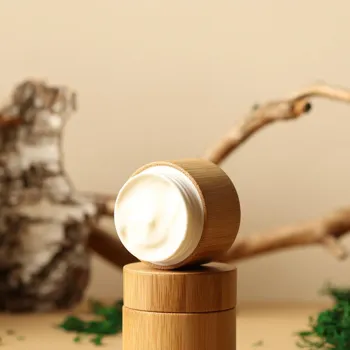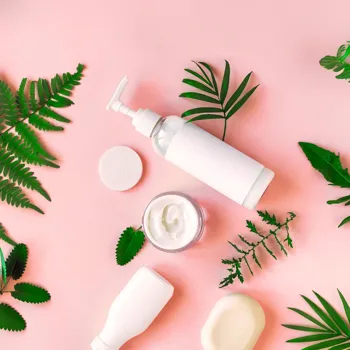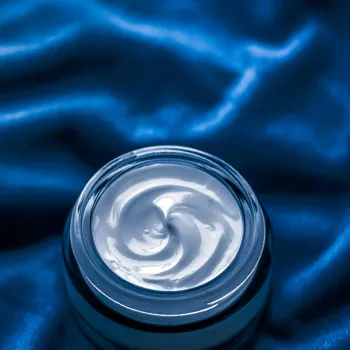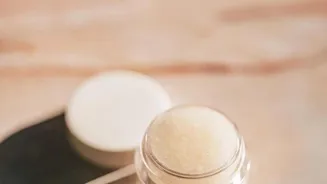Unlock the Secrets to Glowing Skin with 10 Essential Tips. Discover the path to radiant skin!
Namaste, and welcome! Everyone here in India dreams of having that healthy, radiant skin, the kind that makes
heads turn and whispers of "kya skin hai!" follow you around.

But achieving that glow isn't just about luck or good genes; it's about understanding your skin type, following a consistent routine, and making smart, informed choices. Forget those expensive beauty treatments and complicated procedures for now.
We're going back to basics with ten essential skincare tips that will help you unlock your skin's natural luminosity. Trust us, with a little dedication, you'll be saying "hello" to glowing skin in no time!
Know Your Skin Type: The Foundation of Your Routine
Before you dive headfirst into the world of serums and creams, it's crucial to understand your skin type. Is your skin oily, dry, combination, sensitive, or normal? Each skin type has unique needs, and using the wrong products can actually worsen existing concerns.
For instance, if you have oily skin, using a heavy, oil-based moisturizer can lead to clogged pores and breakouts. On the other hand, if you have dry skin, a harsh, alcohol-based cleanser can strip away essential oils, leaving your skin feeling tight and uncomfortable.
A simple test is washing your face and not applying anything for an hour. Feel dryness that means dry face,feel oil that means oily face.
Figuring out your skin type is the foundation of a good skincare routine.
Once you know your skin type, you can choose products that are specifically designed to address its unique needs. Look for product labels that say "for oily skin," "for dry skin," or "for sensitive skin." Don't be afraid to experiment a little to find what works best for you.
After all, skincare is a personal journey, and what works for your friend might not work for you. Listen to your skin, pay attention to how it reacts to different products, and adjust your routine accordingly.
With a little patience and observation, you'll be well on your way to finding the perfect skincare routine for your radiant skin, making you feel as good as they look.
Sunscreen is Your BFF: A Non-Negotiable
If there's one skincare tip that every dermatologist agrees on, it's the importance of sunscreen. The harmful UV rays from the sun can cause premature aging, wrinkles, sunspots, and even skin cancer.
And remember, the sun's rays can damage your skin even on cloudy days, so wearing sunscreen every single day is non-negotiable. Choose a broad-spectrum sunscreen with an SPF of 30 or higher that protects against both UVA and UVB rays.
Apply it liberally to all exposed areas of your skin, including your face, neck, ears, and hands. Applying just a dab won't cut it – you need a generous amount to get the full protective benefit.
Make sunscreen application a part of your daily morning routine.
Apply it after your moisturizer but before your makeup. And don't forget to reapply every two hours, especially if you're spending time outdoors. If you're swimming or sweating, reapply even more frequently.
There are many sunscreens formulated for oily skin which will keep it matte for a longer time. Look for options like gel, lotion, mousse, spray and stick, and then pick the right choice.
Protecting your skin with sunscreen is one of the best investments you can make for its long-term health and beauty. Think of it as your daily shield against sun damage, keeping your skin looking youthful and radiant for years to come. So never skip sunscreen, no matter the weather!
Cleanse Gently: Say Goodbye to Grime, Not Moisture
Washing your face seems so simple, right? But many people make common mistakes that can actually harm their skin. Over-washing your face, using harsh soaps or cleansers, or scrubbing too vigorously can strip away essential oils, leaving your skin feeling dry, irritated, and prone to breakouts.

The key is to cleanse gently, using a mild, pH-balanced cleanser that removes dirt, oil, and makeup without disrupting your skin's natural barrier. Avoid cleansers that contain harsh sulfates or alcohol, as these can be overly drying.
Instead, look for cleansers that contain hydrating ingredients like hyaluronic acid or glycerin.
When cleansing your face, use lukewarm water, not hot water, as hot water can also strip away essential oils.
Gently massage the cleanser onto your skin in circular motions for about 30-60 seconds, then rinse thoroughly. Pat your skin dry with a soft towel – avoid rubbing, as this can irritate your skin. Cleanse your face twice a day, once in the morning and once at night.
Cleansing your face at night is especially important to remove all the makeup, dirt, and pollution that's accumulated throughout the day. If you've been exercising or sweating, you may want to cleanse your face more frequently.
Remember, gentle cleansing is the foundation of healthy, glowing skin, helping you maintain its natural moisture and balance.
Exfoliate Regularly: Shed Dead Skin Cells for Radiance
Exfoliation is the process of removing dead skin cells from the surface of your skin, revealing brighter, smoother, and more radiant skin underneath. Dead skin cells can clog pores, leading to breakouts, dullness, and uneven skin tone.

Exfoliating regularly helps to prevent these problems and promotes cell turnover, keeping your skin looking fresh and youthful. There are two main types of exfoliants: physical exfoliants and chemical exfoliants.
Physical exfoliants include scrubs, brushes, and cloths that physically remove dead skin cells. Chemical exfoliants use acids like AHAs (alpha-hydroxy acids) or BHAs (beta-hydroxy acids) to dissolve dead skin cells.
Start with exfoliating once or twice a week, gradually increasing the frequency as your skin tolerates it. Over-exfoliating can irritate your skin, so it's important to pay attention to how your skin feels and adjust accordingly.
If you're using a physical exfoliant, be gentle and avoid scrubbing too hard. If you're using a chemical exfoliant, follow the instructions carefully and avoid using it on sensitive or irritated skin. After exfoliating, be sure to apply a hydrating moisturizer to replenish any lost moisture.
Exfoliation can make your skin more sensitive to the sun, so it's especially important to wear sunscreen after exfoliating if you are going outside.
Hydrate, Hydrate, Hydrate: Inside and Out
Hydration is key to healthy, glowing skin, both inside and out. When your skin is dehydrated, it can look dull, feel tight, and be more prone to wrinkles. Drinking plenty of water throughout the day helps to keep your skin hydrated from the inside out.

Aim for at least 8 glasses of water a day, and you can also incorporate hydrating foods like fruits and vegetables into your diet. Topically, moisturizing your skin helps to lock in moisture and prevent dryness. Choose a moisturizer that's appropriate for your skin type.
For oily skin, look for lightweight, oil-free moisturizers. For dry skin, look for richer, cream-based moisturizers. Humectants are really helpful to pick out.
In addition to your daily moisturizer, you can also incorporate hydrating serums or masks into your routine for an extra boost of moisture.
Look for products that contain ingredients like hyaluronic acid, glycerin, or aloe vera, which are known for their hydrating properties. Don't forget to moisturize your body as well, especially after showering or bathing. Use a rich body lotion or cream to keep your skin soft and supple.
Hydrated skin is happy skin, and happy skin is glowing skin. With consistent hydration, both internally and externally, you'll notice a significant improvement in your skin's texture, tone, and radiance.
Get Your Beauty Sleep: It's Not Just a Myth
There's a reason they call it beauty sleep! Getting enough sleep is crucial for your overall health and well-being, and it also plays a vital role in maintaining healthy, glowing skin. When you sleep, your body repairs and regenerates cells, including skin cells.
Lack of sleep can lead to a number of skin problems, including dark circles, puffiness, dullness, and breakouts. Aim for at least 7-8 hours of quality sleep each night to allow your skin to repair and rejuvenate itself. Create a relaxing bedtime routine to help you wind down and prepare for sleep.
This might include taking a warm bath, reading a book, or listening to calming music.
Avoid using electronic devices like phones, tablets, or computers before bed, as the blue light emitted from these devices can interfere with your sleep cycle.
Make sure your bedroom is dark, quiet, and cool to create an optimal sleep environment. Sleeping on your back can also help to prevent wrinkles, as it minimizes friction and pressure on your face.
A silk pillowcase can also be beneficial, as it's gentler on your skin and hair than a cotton pillowcase. Getting enough sleep is one of the simplest and most effective ways to improve your skin's appearance and overall health. Make it a priority and watch your skin transform from dull to radiant!



















